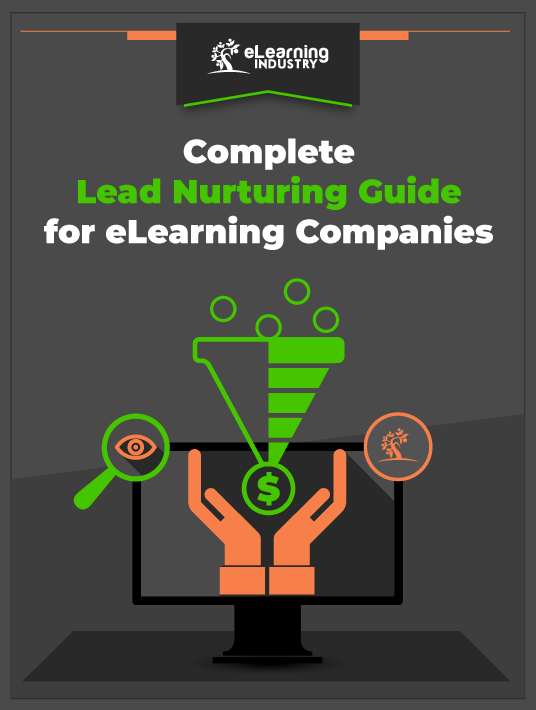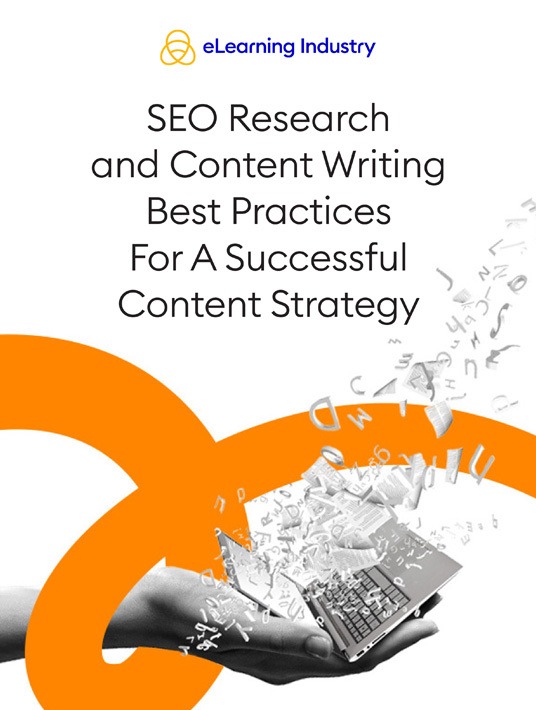What’s The Difference Between Cold, Warm, And Hot Leads In eLearning?
The way you communicate with potential clients in eLearning is essential. You see, not all prospects and leads are the same. So, if you don’t want to prevent your eLearning company from increasing sales, here are a few steps you should take. But first, we have to classify leads and how close they are to buying your eLearning product or service. That’s why first we need to clarify the difference between cold, warm, and hot leads.
For example, some might be warm/hot leads right away, while you must guide others from the cold stage to the warm/hot stage with lead nurturing. You can allocate efforts properly by distinguishing the cold, warm, and hot leads in your sales process.
Timing and where your eLearning leads are in the buyer’s journey are critical. Why? Well, during the time you spend pursuing low-qualified leads, your hot leads may choose to buy from your competitors! Thus, I’d recommend you dedicate most of your working time to persuading hot leads.
Moreover, there might be times you will have to create narrower types of leads. You can do that by breaking down your leads. Worry not, because I’m going to explain everything in a bit. Just keep reading!
Before we start, I’d like you to note that your sales cycle (and how personalized and targeted an approach you take) will determine the next steps of your business growth strategies.
Let’s begin.

eBook Release
Convert Leads Into Customers
Are you struggling to convert leads into customers? Get our guide and become a lead nurturing master!
Cold Vs. Warm Vs. Hot Leads: Key Differences
In the sections below, I will give you a detailed explanation of how to qualify the main types of leads. Also, you’ll find information on which approach you need to take when dealing with cold, warm, and hot leads.
What Are Cold Leads?
So, question number one: what is a cold lead? To simplify, cold leads are leads like website visitors or companies that have no clue about your eLearning brand. Cold leads generally need your product or service. Also, they might have similar characteristics to your customers, i.e., maybe they match your ideal customer profile (ICP). Typically, you can find email contacts of users or organizations in niche databases. Or you can simply find cold leads browsing the web.
For example, a cold lead needs an eLearning solution for their problem. However, they might not need your product, or at least they don’t know they do. So, when dealing with cold leads, your main goal must be to start creating demand for your eLearning product. For starters, you might need to explain the problem they have, which they may have not yet identified. To help them with the above, you can try sending case studies or start asking questions about their specific challenges. Another good idea is to share educational materials (articles, eBooks, guides) and product-related visualized stats.
Are you having trouble attracting your ideal buyers? You’ll enjoy reading more about creating content to target buyers in eLearning.
What Are Warm Leads?
Off we go with question number two: what is a warm lead? Well, warm leads are, for example, website visitors or companies that have a certain need and are interested in your eLearning products. However, making a purchase decision isn’t their top priority—at least, not right now. Warm leads are searching for the best solution. So, they might take their time to consider alternative top eLearning companies, compare the best LMS tools, read customer reviews, etc. This type of lead probably found you on Google or another search engine. They may even have signed up for your eLearning service or requested a demo.
A small note here. Some warm leads might leave their email to get a free eBook. Or maybe they have joined your newsletter subscription. They know your brand, but they show interest in the content rather than an eLearning product. Consequently, they might still be ignoring your messages and calls as cold leads do. Such prospects usually need a different approach.
While with cold leads you have to describe the problem and then explain how they should solve it, you can focus on talking about your eLearning product or service with warm leads. For instance, you can explain the benefits with videos, webinars, product how-to guides, reviews, etc. What I love about warm leads is that you can create an urgency for the purchase; for instance, by using time-limited special offers. For example, you can utilize that to send an exclusive email blast!
Need more tips on this? I bet you’ll love reading these:
What Are Hot Leads?
And now the good one: what is a hot lead? Hot leads are the ones everyone is after, as they are motivated and time-sensitive eLearning buyers. So, when dealing with this type, please consider that hot leads are specific about time, budget, and decision-making power. If you’re wondering how hot leads may find your eLearning business, that could happen via word of mouth, or most likely, you have nurtured them from warm or cold leads.
Here are some examples of content that could lead to hot leads finding your eLearning business:
So, as you can understand, it means a great deal if you manage to get social proof about the effectiveness of your eLearning business. And to do that, you’ll have to a) ask for customer reviews, and b) focus on winning eLearning business awards.
More than anything, keeping in touch with a hot lead is essential. That’s how you hit your sales goals. A good idea would be to reach out to hot leads at least once every 14 to 21 days. Doing so can keep your brand at the top of their minds. Also, following up with hot leads is extremely crucial. However, you must ensure that you use a strategic follow-up process. A CRM tool like Hubspot can help you set up reminders and automation and never let a hot lead get cold.
What’s The Difference Between Leads And Prospects?
Simplifying terms makes them easier to digest. When talking about leads, we’re in top-of-the-funnel territory. So, an unqualified contact is basically a lead. What’s great about leads is that they have typically expressed some interest in your eLearning product. Hence, they might be considering your offering soon. Here’s where you need to spend some time to qualify leads and determine if they fit your ideal buyer persona. Can they benefit from using your eLearning product? Then, with lead nurturing and special offers, you can get the conversions you need from them. On the other hand, prospects are contacts you have qualified as your ideal customers and who would consider buying.
So, as you can understand, turning a lead into a prospect means you have to walk them through the sales qualification process. Consider starting with whether the lead matches your target location, industry, and company size. Also, try to determine if the prospect can implement your offering. And, of course, if they can actually benefit from your product. If the lead fits your ideal buyer persona and can benefit from your tool or service, you have to find out if they have the authority to make a final purchase decision. In case they don’t have the power to make purchase decisions, they might at least be able to influence the process and get buy-in from the C-suite. If that’s not possible, you may need to find the right stakeholder to approach to close the sale.
By solving the problems potential buyers are facing, you gain their trust. All you have to do is create a content strategy that constantly brings quality leads into your conversion funnels.
Keep getting fresh leads and then qualify them to see which ones could bring sales opportunities.
The key here, again, is content strategy, buyer personas, and search intent.
Creating funnels that attract the right buyers to your website is all you need.
Generate leads and turn them into eLearning customers!
 SEO” src=”https://cdn.elearningindustry.com/wp-content/uploads/2021/08/SEO-Research-and-Content-Writing-Best-Practices-eLearning-Industry-Cover.jpg” />
SEO” src=”https://cdn.elearningindustry.com/wp-content/uploads/2021/08/SEO-Research-and-Content-Writing-Best-Practices-eLearning-Industry-Cover.jpg” />
eBook Release
Attract Your Ideal Buyers With Content Marketing And SEO
In this eBook, you’ll find the rules and best practices for creating optimized content that attracts your ideal buyers.
How Do You Attract, Convert, Close, And Delight Hot Leads In eLearning?
Many eLearning marketers and sales pros have been wondering if there are any easy ways to convert hot leads.
Are you looking for some ideas on how to warm cold leads? First off, you need to find buyer intent triggers. Take a look at these amazing lead generation eBook ideas, for example.
Plus, you can mention someone they know (if possible). LinkedIn is also a great way to generate warm leads. And we all know that’s where all professionals like to hang out.
Lately, many marketers have started using Reddit to generate demand. While it takes time, if you play it naturally, you can get results or at least increase brand awareness. Finally, give Twitter a try. More often than not, tweets can become viral…and boom! You can grab prospects’ attention just by being you.
Need extra tips for closing hot leads?
Look, your leads are not naive. They know that you’ll keep trying to sell them on your eLearning product/service. Hence, don’t be sales-y.
Instead, try to determine what goals hot leads have. Then provide them with additional support to help them reach and capitalize on those goals. For example, you can send an email to a lead with an eLearning audience survey you’ve found, which they might find interesting. Or maybe a new study or eBook that is relevant to their interests or job role. Keep doing little things like these, and I promise you that you’ll build a stronger relationship with your leads.
That’s why I love content marketing and email marketing. Both strategies make you more likely to close a deal when the time comes.
Wrapping Up
Kudos for making it to the end of this article! Now you know the differences between cold, warm, and hot leads. Plus, you’ve understood the importance of a) creating useful content, b) continuous lead generation, c) lead nurturing campaigns, and d) building trust.
Now, it’s time for action!
If you want to get one step closer to converting hot leads and closing deals, you can apply for eLearning Industry’s top lists:
Winning a prestigious award in your area of expertise can certainly help you turn the tables. The above survey only takes 8–10 minutes. The main goal is to get more insights into what your ideal eLearning buyers need and what kind of challenges they face. Then you can focus on creating content marketing strategies that offer solutions to their problems. That’s how you earn respect from the eLearning audience and prove you’re an expert in a specific field.
Ready to turn leads into paying customers? As we’ve mentioned plenty of times in previous articles, it’s all about promoting your unique selling point to the right people.



















